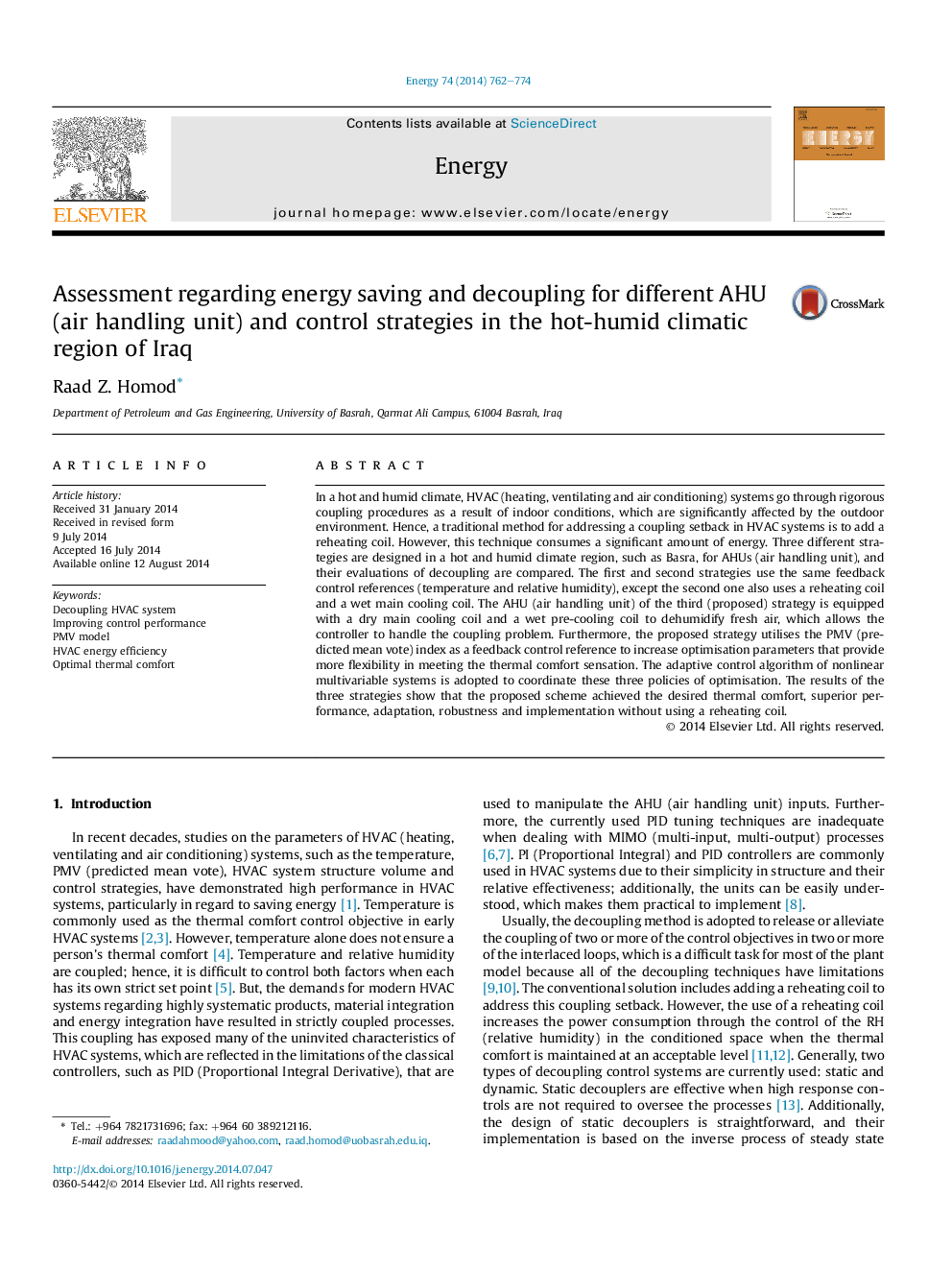| Article ID | Journal | Published Year | Pages | File Type |
|---|---|---|---|---|
| 1732508 | Energy | 2014 | 13 Pages |
•The decoupling problem, control performances, and energy savings is considered.•Use PMV (predicted mean vote) as an objective enables control to optimize all of the comfort parameters.•This study investigates the decoupling problem by exploit PMV input parameters.•Three different schemes of AHU (air handling unit) are evaluated to solve decoupling problem.•Proposed HVAC systems can save up to 32.1% of energy without using a reheating coil.
In a hot and humid climate, HVAC (heating, ventilating and air conditioning) systems go through rigorous coupling procedures as a result of indoor conditions, which are significantly affected by the outdoor environment. Hence, a traditional method for addressing a coupling setback in HVAC systems is to add a reheating coil. However, this technique consumes a significant amount of energy. Three different strategies are designed in a hot and humid climate region, such as Basra, for AHUs (air handling unit), and their evaluations of decoupling are compared. The first and second strategies use the same feedback control references (temperature and relative humidity), except the second one also uses a reheating coil and a wet main cooling coil. The AHU (air handling unit) of the third (proposed) strategy is equipped with a dry main cooling coil and a wet pre-cooling coil to dehumidify fresh air, which allows the controller to handle the coupling problem. Furthermore, the proposed strategy utilises the PMV (predicted mean vote) index as a feedback control reference to increase optimisation parameters that provide more flexibility in meeting the thermal comfort sensation. The adaptive control algorithm of nonlinear multivariable systems is adopted to coordinate these three policies of optimisation. The results of the three strategies show that the proposed scheme achieved the desired thermal comfort, superior performance, adaptation, robustness and implementation without using a reheating coil.
Graphical abstractFigure optionsDownload full-size imageDownload as PowerPoint slide
